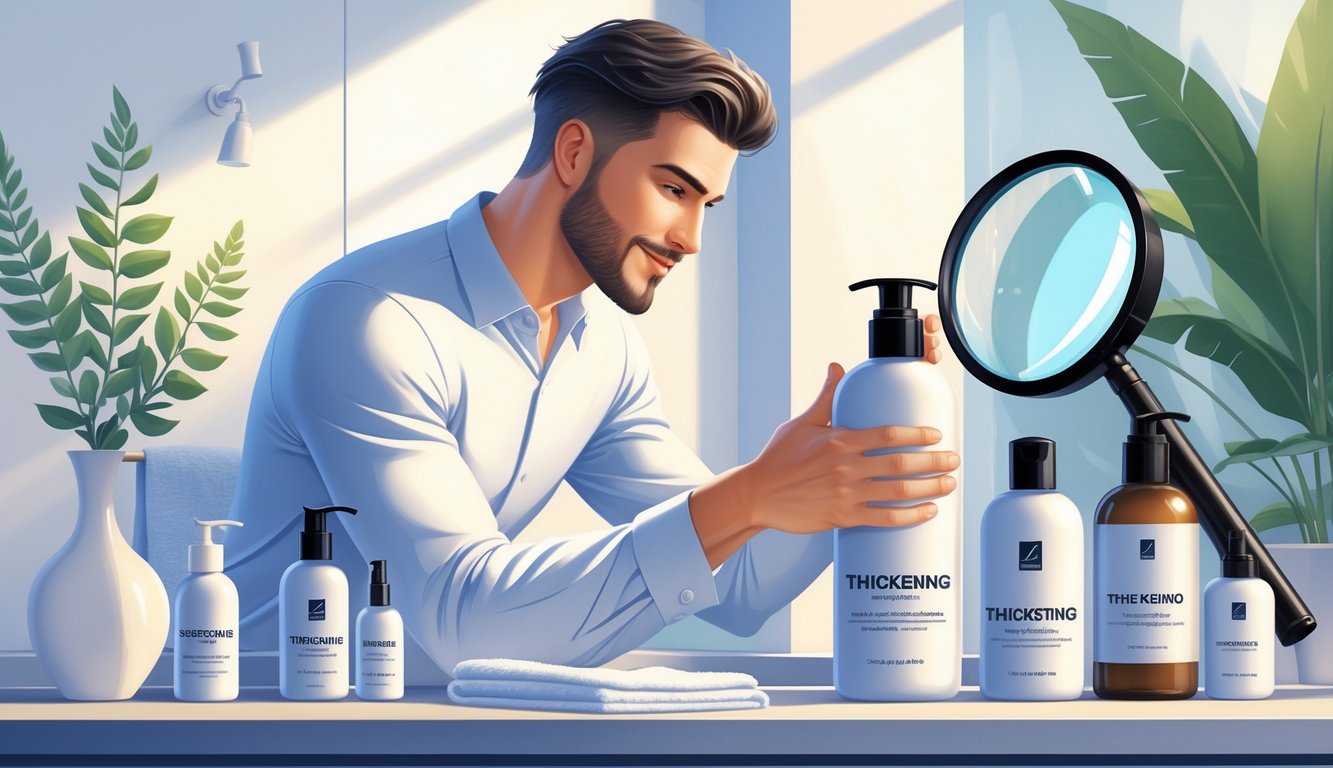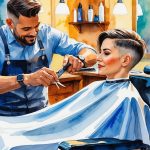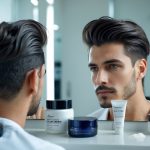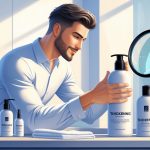
Dealing With Dandruff and Inflammation
Flakes everywhere? Annoying and, apparently, normal. Watched a friend bounce between zinc pyrithione and ketoconazole for a year—nothing changed until he actually dealt with his scalp inflammation. Dandruff isn’t just dry skin, it’s usually your scalp losing the oil/yeast battle (Malassezia, always Malassezia). A dermatologist told me half their male patients see improvement just by switching to fragrance-free, gentle cleansers.
After way too many experiments, here’s my rule: let the active shampoo sit a few minutes, rinse really well, and skip the brutal styling gels. Natural stuff like salicylic acid, aloe, or green tea might help, but coconut oil and shea butter? Disaster for my scalp—just made it itchier. If your scalp burns after washing, that’s not “opening pores.” That’s just damage.
Oils and Natural Remedies for Scalp Health
Pumpkin seed oil—everyone online swears by it, but I found one actual study (J. Dermatol. 2014) and, yeah, it helped a bit after half a year. Not a miracle. Argan oil is more legit, mostly for the vitamin E—it does help if you’re torching your hair with heat tools.
Rosemary oil? I smelled like a breadstick for a month, but okay, that 2015 trial says it might rival minoxidil for some guys. Still, every oil can turn into an irritant if you just start slathering it on. I always mix a drop of rosemary with jojoba, or my scalp turns into a grease trap and then I regret everything.
Coconut oil? Good for the ends, awful for the roots if you’re prone to yeast. Dermatologist basically told me, “It traps heat and fungus, don’t do it.” So I don’t. Pomegranate enzymes? Fine, but don’t go wild or you’ll end up with a hypersensitive scalp halfway through the bottle.
When to See a Dermatologist About Hair Thinning
It’s never just “normal shedding,” right? I kept telling myself that while staring at the shower drain. The clumps, the widening part, the weird patch at the back of my head that only shows up on Zoom—shampoos aren’t fixing that. Googling “ketoconazole” just makes it worse. Then you fall into some copper peptide rabbit hole and come out more confused.
Warning Signs You Shouldn’t Ignore
Some days, a single hair on my shirt? Whatever. But when you start seeing your scalp in weird lighting, or breakage leaves those awkward little stubs everywhere, it’s hard to ignore. If you’re waking up to hair on your pillow or the drain looks like a horror movie, maybe it’s time to worry. Ignore anyone promising “full regrowth in six weeks.” Dermatologist Dr. Rahil Roopani said most men notice changes only after half their follicles are already struggling. That’s not comforting.
Nobody at the drugstore explains that persistent itching, redness, or brittle, snap-prone hair are warning signs too. Sometimes it’s not about bald spots—it’s that weird shine on your scalp under office lights. Hair on your desk? Time to call a pro.
Diagnosing Underlying Conditions
I thought it was just stress. Left the derm’s office with a lab slip and a scalp biopsy. They don’t just glance at you—they interrogate: Are the follicles shrinking? Is this breakage from bleach or stress? “Family history? Tried zinc shampoo?” Suddenly, I’m remembering my uncle was bald at 30.
Turns out, sometimes it’s thyroid, sometimes iron, or maybe it’s just telogen effluvium (yep, stress again, or that new medication). A lot of guys panic over stuff that’s actually reversible. No shampoo bottle ever warned me my ferritin was low.
Treatment Options and Next Steps
My first move? Bought a “volumizing” kit at 2 a.m. Didn’t help. In the clinic, it’s always minoxidil, finasteride, prescription shampoos (ketoconazole, again), and sometimes copper peptides or growth serums. They won’t fix everything, but at least a dermatologist can sort what’s worth it. FDA-approved stuff can slow genetic loss, but if it’s scarring, you’re out of luck.
Some doctors just say, “Be gentle.” Soft towel, wide-tooth comb. When I asked about “natural” options, one doctor laughed: “Kakadu plum? Not much evidence, but it won’t hurt.” The only thing that matters: don’t wait if your hair loss suddenly changes or nothing feels right. Ignore the ads—see a real doctor. Sometimes “just thinning” is actually something you can treat. Or, you know, not.
Frequently Asked Questions
Why does everyone ask me what works for thinning hair? Like I know. There’s ingredient lists, warnings, products called “revitalizing” (whatever that means)—it’s all exhausting. I’ve spent years trying to separate marketing nonsense from what dermatologists actually use.
What do dermatologists recommend for men with thinning hair?
My bathroom’s a graveyard of minoxidil bottles, and apparently, that’s normal. Dr. Brendan Camp says it’s the best bet, even if the ads are ridiculous. Some docs suggest finasteride, but seriously, who’s tracking their liver numbers that closely? Shampoos can make hair look better, but real results come from minoxidil or finasteride—no matter what the caffeine serum crowd says.
Which shampoos do experts suggest for achieving thicker hair in men?
If you believe the emails I get, Dr. Yates and Keeps thickening shampoos are everywhere. Never seen a doctor use one in real life, though. Natural ingredients like saw palmetto, biotin, or caffeine get tossed around, but every dermatologist I know says the shampoo is just one piece. The “miracle shampoo” thing sells bottles, not results.
What are the top volumizing shampoos for men’s hair care?
Every year there’s a new “best” list. Forbes Vetted says Dr. Yates MD Daily Thickening Shampoo is it for 2025. I keep grabbing the same old brands. Derms I’ve shadowed? They always go for sulfate-free, short ingredient lists, nothing neon or weirdly scented. My friend’s convinced his hair thickened from a new shampoo, but honestly, it was the haircut and mousse.
How can men effectively use hair thickening shampoos for the best results?
Nobody tells guys how to shampoo. Most just slap it on and rinse. Dermatologists mention letting it sit for a minute, which feels awkward when you’re half-asleep. Massage it in, rinse well, skip daily washes if you can. Not rocket science, but nobody does it.
What ingredients should men look for in a shampoo to help with hair loss?
Everyone says biotin, ketoconazole, saw palmetto, niacinamide. Sometimes caffeine, just for that tingle (which, let’s be honest, doesn’t do much). Derms always say avoid harsh sulfates and alcohols, but I can’t even pronounce half the chemicals on those labels. Rosemary oil is the new hot thing, but the studies? Tiny and pretty inconclusive. Still, I keep googling it every night.
What are some dermatologist-approved tips for maintaining healthy, thick hair for men?
SPF for your scalp—seriously, who actually remembers that? Sunburn on a thinning part apparently messes with hair growth (I’ve done this twice, didn’t learn). Dermatologists keep going on about eating actual food with vitamins in it, not just protein shakes and whatever’s trendy. Stress? They tell you to keep it “moderate,” which is hilarious. Is that even a real thing? Nobody wants to admit that tight hats are like little sandpaper machines for your hairline, but it’s true. And yeah, heat tools get all the blame, but I swear my pillowcase is just as guilty. My brother’s still refusing to try a silk one—he thinks it’s “extra”—but at least he finally stopped using that awful 2-in-1 shampoo/conditioner sludge. Progress? Maybe.



